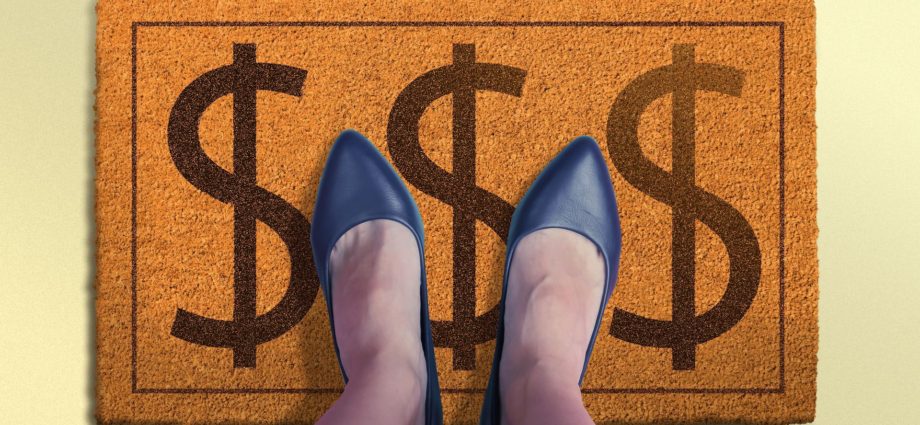PHOTO: Sarah Grillo/Axios
The commission that U.S. home sellers typically pay to real estate agents is under fire, with the real estate industry accused of antitrust violations and extracting exorbitant fees.
Why it matters: Some legal experts predict that an antitrust lawsuit over brokers’ fees will reach the Supreme Court — and say the many challenges to the current system could upend the market and make it cheaper to sell a home.
The big picture: One thing the challengers are seeking is “the uncoupling of commissions, so that both buyers and sellers negotiate and pay their own broker compensation,” per the Consumer Federation of America.
- Only that change “can foster the price competition that exists in most other consumer markets,” the group says.
How it works: The seller’s real estate agent typically charges a 5%–6% commission and shares it with the buyer’s agent.
- A Justice Department settlement with the National Association of Realtors (NAR) — which will be finalized as early as mid-February — will make it illegal for a buyer’s agent to characterize their services as free, as often happens.
- Real estate websites will have to disclose publicly what percentage of a sale the buyer’s agent will reap.
- “The settlement will discourage blatant discrimination against discount brokers and the steering of buyers to high-commission properties,” but doesn’t go far enough, Stephen Brobeck, a senior fellow at the Consumer Federation of America, said in a statement.
Driving the news: Several powerful forces are going up against NAR and the rules governing home sales in various states:
- The Justice Department settlement was filed simultaneously with an antitrust lawsuit against the association in November, demanding changes to rules it called anti-competitive.
- Two lawsuits seeking class-action status, in Illinois and Missouri, were filed by plaintiffs who say they were overcharged as a result of NAR’s system.
- REX Real Estate, a discount brokerage, is suing Oregon and other states that bar real estate agents from giving rebates to consumers.
Jack Ryan, founder and CEO of REX, is among those who argue that NAR’s commission system suppresses U.S. homeownership rates and reduces overall household wealth. “This is a great David vs. Goliath story, both in terms of the odds but also in terms of the moral implications,” he said.
- His company charges 2%–2.5% to sell a home, similar to the prevailing rates in other developed countries.
Of note: Real estate agent fees are a $100 billion-a-year business, per a 2019 Consumer Federation of America report. “These commissions — usually $15,000 to $18,000 on the sale of a $300,000 home — represent one of the most expensive products purchased by many consumers,” the report said.
READ MORE VIA AXIOS











